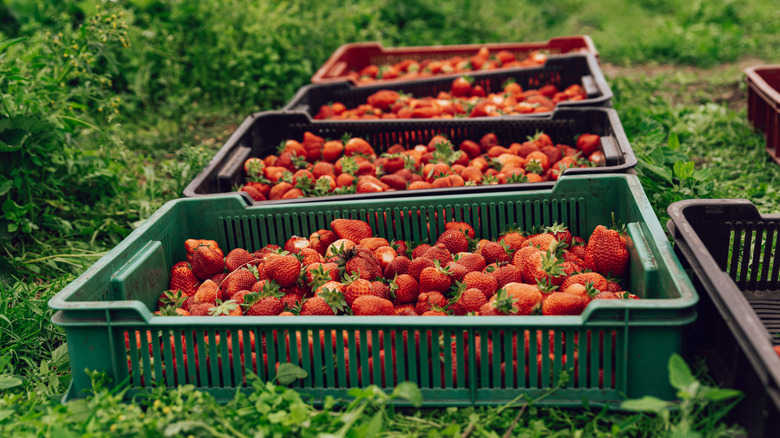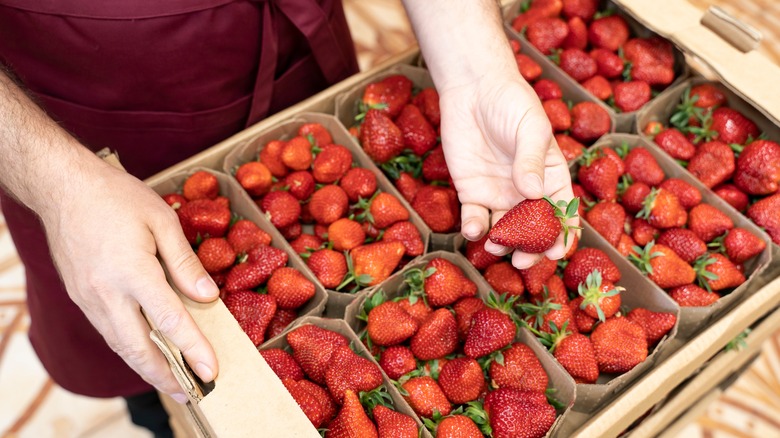How Worried Should You Be About The Strawberry Hepatitis Recall?
If you love fresh, seasonal fruit — and really, who doesn't? — you've likely been indulging in all the spring offerings, such as apricots, cherries, and kiwis. And when we think of spring produce, one all-star comes to mind before all the others: sweet strawberries, which typically arrive in markets in May (via Better Homes & Gardens) and bring their much anticipated freshness to salads, jams, and desserts.
As delicious as they are, strawberries are often at risk of carrying harmful foodborne pathogens such as viruses and bacteria, according to Healthline, which usually results from being watered with contaminated water. These risks are greatly reduced by cooking fresh produce, but since strawberries are typically eaten raw, they have the potential to infect the berry-lovers among us.
If you purchased organic strawberries between early March and late April and still have some kicking around your fridge or freezer, read on, because a fairly serious Hepatitis A outbreak has affected strawberry crops and caused some people to fall ill.
Toss any FreshKampo or HEB organic strawberries
According to the U.S. Food & Drug Administration (FDA), a multi-country outbreak of the Hepatitis A virus that infected organic strawberries sickened 17 people in the U.S. and 10 in Canada, with 12 hospitalizations as of April 30. The outbreak was traced to berries sold between March 5 and April 25, and marketed by the brands HEB and FreshKampo. Sold in many major supermarkets including Aldi, HEB, Kroger, Safeway, Sprouts, Trader Joes, Walmart, Weis, and WinCo, the strawberries were distributed in various U.S. states as well as Canada, with the bulk of the resulting illnesses having been traced to berries purchased in California (via NPR). No deaths have been associated with the outbreak.
According to Insider, symptoms that can indicate foodborne exposure to Hepatitis A, which infects the liver, include fatigue, stomach upset, yellow skin, and dark urine. Although the impacted strawberries are no longer on store shelves, customers who purchased them during this time and still have some in the fridge or freezer are recommended to watch out for these symptoms and to toss any organic strawberries marketed by FreshKampo or HEB. If customers cannot remember which brand of organic strawberries they purchased during that time frame and then froze, the FDA recommends tossing those, too, in order to err on the side of safety.

